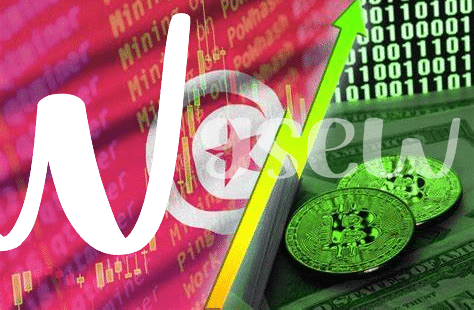Introduction to Bitcoin and Tunisian Legal Landscape 🌍

Bitcoin, as a decentralized digital currency, has increasingly gained attention worldwide, including within the unique legal framework of Tunisia. The adoption of Bitcoin in Tunisia raises pertinent questions about its legal implications and interactions with existing regulations. Understanding the nuances of the Tunisian legal landscape is essential for navigating the complexities associated with Bitcoin transactions in this jurisdiction. This introductory section will delve into the foundational aspects of Bitcoin, highlighting its decentralized nature and cryptographic principles. Moreover, we will explore the current legal environment in Tunisia, shedding light on the regulatory framework surrounding digital currencies and the evolving attitudes towards blockchain technology. By examining the interplay between Bitcoin and Tunisian regulations, this article aims to provide a comprehensive overview that sets the stage for a deeper exploration of the legal implications and challenges that arise in utilizing Bitcoin within this context.
Legal Status of Bitcoin in Tunisia 📜
The legal landscape surrounding Bitcoin in Tunisia has been a topic of growing interest and scrutiny. As the adoption of cryptocurrencies continues to rise globally, governments are faced with the challenge of regulating these digital assets within their existing legal frameworks. In Tunisia, the status of Bitcoin remains somewhat ambiguous, with no specific laws or regulations addressing its use. This lack of clarity has left both investors and businesses in a state of uncertainty, unsure of how their activities involving Bitcoin may be perceived by the authorities. Despite this ambiguity, there have been no reported cases of Bitcoin users facing legal repercussions in Tunisia, suggesting a relatively tolerant approach by the government towards the cryptocurrency.
As the Tunisian government grapples with the evolving landscape of digital assets, there is a growing need for clear and comprehensive regulations regarding the use of Bitcoin. Establishing a formal legal framework for Bitcoin could provide much-needed clarity and stability for both users and businesses operating in the country. Additionally, addressing the legal status of Bitcoin in Tunisia could open up new opportunities for innovation and investment in the cryptocurrency space, potentially positioning the country as a favorable destination for blockchain technology development.
Regulatory Challenges and Concerns 💼

Bitcoin’s growing popularity in Tunisia has raised a myriad of regulatory challenges and concerns. One of the primary issues revolves around the lack of clear guidelines on how to categorize and regulate virtual currencies like Bitcoin. The Tunisian government has expressed apprehensions about the potential risks associated with cryptocurrencies, such as money laundering, terrorist financing, and consumer protection. This uncertainty has led to a cautious approach towards embracing Bitcoin within the formal financial system. Additionally, the decentralized nature of Bitcoin poses significant difficulties in monitoring and regulating transactions, creating further obstacles for regulators. Balancing innovation with regulatory compliance remains a key challenge for Tunisian authorities as they navigate the evolving landscape of digital assets. Addressing these concerns will be essential to foster a more conducive environment for the adoption and utilization of Bitcoin in Tunisia.
Tax Implications for Bitcoin Transactions 💰

Certainly, here is the requested text:
Bitcoin transactions in Tunisia carry significant tax implications that individuals and businesses need to navigate cautiously. The evolving nature of digital assets like Bitcoin poses challenges for tax authorities in determining how to classify and tax transactions conducted using these decentralized currencies. With the lack of specific regulations tailored to cryptocurrencies in Tunisia, taxpayers engaging in Bitcoin transactions may face uncertainties surrounding tax liabilities and reporting requirements. As tax authorities globally increasingly scrutinize cryptocurrency transactions, ensuring compliance with tax laws becomes crucial for Tunisian Bitcoin users to avoid potential penalties or legal complications.
For further insights into upcoming regulatory changes for Bitcoin users, you can refer to this informative article on upcoming regulatory changes for bitcoin in Turkey.
A Look at Potential Legal Solutions 🧠
Potential legal solutions include clarifying the regulatory framework surrounding Bitcoin usage in Tunisia, establishing guidelines for compliance with anti-money laundering laws, and enhancing consumer protection measures. Additionally, fostering dialogue between government officials, financial institutions, and cryptocurrency experts can lead to the development of tailored regulations that balance innovation with risk mitigation. Encouraging educational initiatives to raise awareness about the legal rights and responsibilities of Bitcoin users, as well as promoting collaboration with international organizations to align Tunisia’s approach with global best practices, are key steps towards ensuring a secure and sustainable environment for cryptocurrency transactions in the country. By proactively addressing legal uncertainties and leveraging technology to enhance regulatory oversight, Tunisia can harness the benefits of Bitcoin while safeguarding against potential risks.
Conclusion and Future Outlook 🔮

Bitcoin has undoubtedly made its mark on the financial landscape of Tunisia in recent years, but navigating the legal implications surrounding its use remains a complex and evolving challenge. As we look towards the future, one thing is certain: regulatory changes will play a crucial role in shaping the trajectory of Bitcoin in Tunisia. Embracing these upcoming regulatory changes for bitcoin in Tonga will not only provide clarity for users but also pave the way for a more secure and transparent environment for cryptocurrency transactions. By staying informed and proactive, both individuals and businesses can adapt to these changing legal landscapes and contribute to the growing acceptance and integration of Bitcoin in the Tunisian market.
